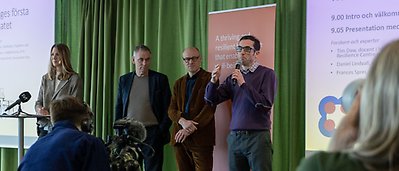Key references
To request any of the articles, please send an email to
info@stockholmresilience.su.se
and include the publication title in the subject line.
311:1557-1558.
Carpenter, S. R., and W. A. Brock. 2008. Adaptive capacity and traps. Ecology and Society 13(2): 40. http://www.ecologyandsociety.org/vol13/iss2/art40/
Cinner, J.E., T.M. Daw, and T.R. McClanahan. 2009. Socioeconomic factors that affect artisanal fishers' readiness to exit a declining fishery. Conservation Biology 23:124—130.
Chapin, III, F.S., S.R. Carpenter, G.P. Kofinas, C. Folke, N. Abel, W.C. Clark, P. Olsson, D.M. Stafford Smith, B.H. Walker, O.R. Young, F. Berkes, R. Biggs, J.M. Grove, R.L. Naylor, E. Pinkerton, W. Steffen, and F.J. Swanson. 2010. Ecosystem stewardship: sustainability strategies for a rapidly changing planet. Trends in Ecology and Evolution 25:241-249.
Cinner, J.E. 2011. Social-ecological traps in reef fisheries. Global Environmental Change 21:835-839.
Cinner, J.E, C. Folke, T. Daw, and C. Hicks. 2011. Responding to change: using scenarios to understand how socioeconomic factors may influence amplifying or dampening exploitation feedbacks among Tanzanian fishers. Global Environmental Change 21:7-12.
Costanza, R., L. Graumlich, W. Steffen, C. Crumley, J. Dearing, K. Hibbard, R. Leemans, C. Redman, and D. Schimel. 2007. Sustainability or collapse: what can we learn from integrating the history of humans and the rest of nature? Ambio 36:522-527.
Crépin, A-S. 2007. Using fast and slow processes to manage resources with thresholds. Environmental and Resource Economics 36:191-213.
Crona, B., M. Nyström, C. Folke, and N. Jiddawi. 2010. Middlemen, a critical social-ecological link in coastal communities of Kenya and Zanzibar. Marine Policy 34:761-771.
Daw, T., K. Brown, S. Rosendoi, and R. Pomeroy. 2011. Applying the ecosystem services concept to poverty alleviation: the need to disaggregate human well-being. Environmental Conservation 38:370—379.
Daw, T.M., J.E. Cinner, T.R. McClanahan, K. Brown, S.M. Stead, et al. 2012. To fish or not to fish: factors at multiple scales affecting artisanal fishers´ readiness to exit a declining fishery. PLoS ONE 7(2):e31460. doi:10.1371/journal.pone.0031460.
Deutsch, L., S. Gräslund, C. Folke, M. Huitric, N. Kautsky, M. Troell, and L. Lebel. 2007. Feeding aquaculture growth through globalization: exploitation of marine ecosystems for fishmeal. Global Environmental Change 17:238-249.
Enfors, E., and L.J. Gordon. 2008. Dealing with drought: The challenge of using water system technologies to break dryland poverty traps. Global Environmental Change 18:607-616.
Enfors, E. 2009. Traps and transformations — exploring the potential of water system innovations in dryland sub-Saharan Africa. Ph.D. thesis in Natural Resources Management, Stockholm University. May 2009.
Graham, N.A.J., S.K. Wilson, S. Jennings, N.V.C. Polunin, J. Robinson, J.P. Bijoux, and T.M. Daw. 2007. Lag effects in the impacts of mass coral bleaching on coral reef fish, fisheries, and ecosystems. Conservation Biology 21:1291-1300.
Holling, C.S., and G. Meffe. 1996. Command and control and the pathology of natural resource management. Conservation Biology 10:328-337.
Huitric, M. 2005. Lobster and conch fisheries of Belize: a history of sequential exploitation. Ecology and Society 10(1): 21. http://www.ecologyandsociety.org/vol10/iss1/art21/
Janssen, M.A., and M. Scheffer. 2004. Overexploitation of renewable resources by ancient societies and the role of sunk-cost effects. Ecology and Society 9(1): 6. http://www.ecologyandsociety.org/vol9/iss1/art6/
Norström, A.V., M. Nyström, J. Lokrantz, and C. Folke. 2009. Alternative states on coral reefs: beyond coral—macroalgal phase shifts. Marine Ecology Progress Series 376:295-306.
Nyström, M., A.V. Norström, T. Blenckner, J.S. Eklöf, C. Folke, H. Österblom, R.S. Steneck, M. Thyresson, M. de la Torre Castro, and M. Troell. In press. Redirecting feedbacks of degraded marine ecosystems. Ecosystems.
Österblom, H., M. Sissenwine, D. Symes, M. Kadin, T. Daw, and C. Folke. 2011. Incentives, social-ecological feedbacks and European fisheries. Marine Policy 35:568—574.
Steneck, R.S., T.P. Hughes, J.E. Cinner, W.N. Adger, S.N. Arnold, F. Berkes, S.A. Boudreau, K. Brown, C. Folke, L.H. Gunderson, P. Olsson, M. Scheffer, E. Stephenson, B.H. Walker, J. Wilson, and B. Worm. 2011. Creation of a gilded trap by the high economic value of the
Maine lobster fishery. Conservation Biology 25:904—912.
Sterner, T., M. Troell, J. Vincent, S. Aniyar, S. Barrett, W. Brock, S.R. Carpenter, K. Chopra, P. Ehrlich, M. Hoel, S.A. Levin, K.-G. Mäler, J. Norberg, L. Pihl, T. Söderqvist, J. Wilen, and A. Xepapadeas. 2006. Quick fixes for the environment: part of the solution or part of the
problem. Environment 48 (no10):20-27.
Thyresson, M. Nyström, M. and B. Crona. 2011. Trading with resilience: Parrotfish trade and the exploitation of key-ecosystem processes in coral reefs. Coastal management. 39:4:396-411.
Walker, B.H., N. Abel, J.M. Anderies, and P. Ryan. 2009. Resilience, adaptability, and transformability in the Goulburn-Broken Catchment, Australia. Ecology and Society 14(1): 12. http://www.ecologyandsociety.org/vol14/iss1/art12/
Westley, F., P. Olsson, C. Folke, T. Homer-Dixon, H. Vredenburg, D. Loorbach, J. Thompson, M. Nilsson, E. Lambin, J. Sendzimir, B. Banarjee, V. Galaz, and S. van der Leeuw. 2011. Tipping towards sustainability: emerging pathways of transformation. Ambio 40:762-
780.
LATEST NEWS
-

General news | 2024-04-24
Greentopia: music and sports events, a highway to sustainability?
Can music and sports events help societal transformations toward sustainability? During one of Sweden's premier festivals, Way Out West, the Centre co-hosts a climate summit to help answer that question.
-

General news | 2024-04-18
Centre research listed among top ten of most cited papers in policy
Three scientific works with heavy involvement from the Stockholm Resilience Centre have been included on a list of the ten most cited non-economics papers in policy documents by Nature
-

General news | 2024-04-10
Centre receives extended funding from Mistra for food research
The research programme Mistra Food Futures, in which the Centre is a partner, receives SEK 64 million for the upcoming four and a half years
-

Educational news | 2024-04-09
New planetary boundary game bridges education and climate action
A new innovative computer game lets Danish school children learn about key research on planetary boundaries
-

General news | 2024-03-08
First Swedish national citizens’ assembly on climate kicks off
How should Sweden lower its emissions to be in line with the Paris Agreement? This question is at the core as Sweden’s first national citizens’ assembly on climate starts on 9 March 2024
-

General news | 2024-03-08
Lisen Schultz listed as one of the most influential women in business in Sweden
Centre deputy director Lisen Schultz, director of the Executive Programme on Resilience Thinking, has been included on the list of most influential women within the Swedish business sector




